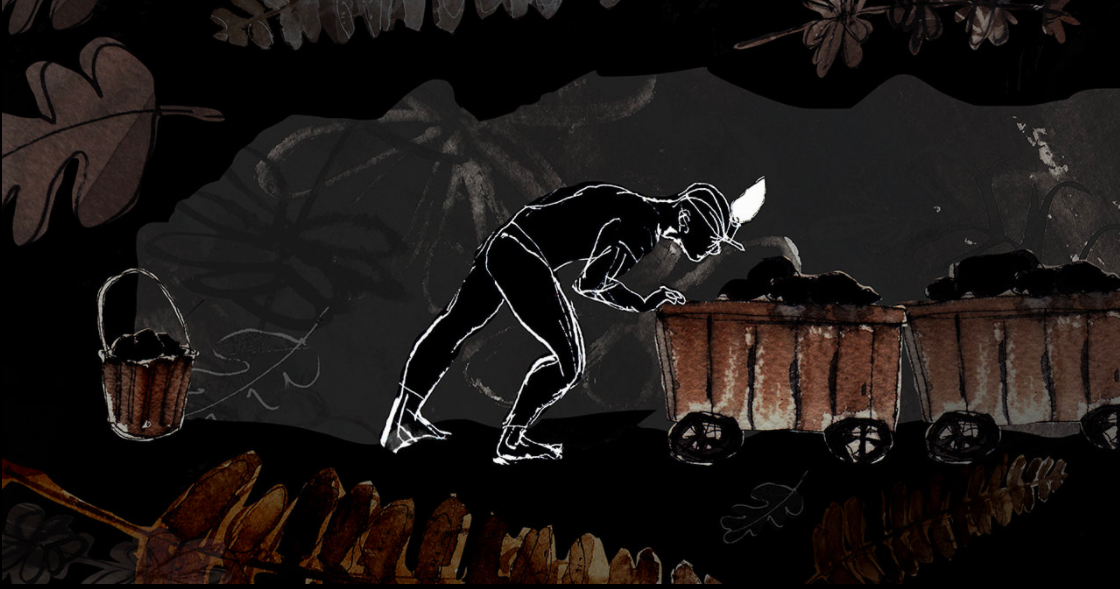
Environmental Humanities
Addressing Environmental Issues Through the Humanities
Traditionally, science has been the primary lens for examining environmental issues. Yet we increasingly recognize the critical role of the humanities -- literature and cultural studies, history, philosophy and ethics, political economy, psychology and the arts -- in understanding and responding to ecological crisis. These disciplines help us explore our belief systems and values, along with the social and political structures that underpin our fossil fuel economy.
A humanities perspective is important when it comes to addressing climate change, because while science provides crucial knowledge about physical processes, it doesn't necessarily help us understand how we got into this mess in the first place. Nor does it offer a map for changing the values and structural conditions causing ecological assault and climate injustice. What's happening in the atmosphere is merely the symptom of something far more complex brewing down below in the realms of politics and education, our economic structures and social values, human psychology, social inequality and power. These are the areas the humanities and social sciences help us better understand.
Narrative and storytelling are especially powerful forces in shaping how we perceive our world, ourselves, and our relations with each other. They influence the kinds of questions we ask, and even what we understand to be a problem itself. For instance: is CO2 the root cause of climate disruption? Or does the real source of the problem lie in our consumer way of life and the myth of the American dream? Is our climate crisis the product of religious belief in the superiority of humans over other forms of life? Or philosophical traditions that see nature as an inanimate storehouse of “resources”? In what way is our current predicament the product of entrenched political power and manipulations of the fossil fuel industry? Or the legacy of colonialism and racial inequality, whereby small groups seize disproportionate control over our planet's land and resources? How might climate change relate to the breakdown in democratic institutions, or the distortions of information by corporate-controlled media? How is it linked to the movies and advertisements we consume, the books we read our children, the images that shape what we value?
When we look closely at all the complex dimensions of our climate crisis, we see that the humanities play a critical role in both our understanding of the problem and our fight for a livable future.
An Interdisciplinary Problem
The impacts of climate change are not a single thing you can isolate, like sea level rise or melting glaciers. When you pick out any thread within the climate crisis, you find it tangled up with everything else: public health, agriculture and food security, military conflicts and interpersonal violence, the global refugee crisis, poverty, inequality and racial injustice, mental health in the wake of climate disasters, indigenous rights, the existential despair we feel in witnessing mass extinction and the loss of natural wonders, and much more.
Using a single disciplinary lens to examine ecological disruption can compartmentalize and distort the vast complexity of these issues, which in turn inhibits us from mounting an effective response. Interdisciplinary approaches, on the other hand, allow us to apply multiple scholarly methods that better reflect the multifaceted consequences of climate breakdown.
A Failure of Story
Some humanities scholars argue that our collective failure to respond to the climate crisis is a massive failure of story. Stories are one of the key cultural technologies that made the human species successful, allowing us to develop and transmit knowledge across space and time, and create narratives of belonging and meaning. But in modern times (particularly in industrialized Western societies), the dominant story of humanity's relation to the natural world has failed us. That story has cast humans as an exceptional species superior to (and existing apart from) the rest of nature. Other living beings are seen as "resources" that we are entitled to use as we like. Meanwhile, in terms of climate change, we remain incapable of grasping or representing the temporal and spatial scale of planetary disruptions, and well as relations between cause and effect. Our stories have not held out effective metaphors for existential crisis. Finally, we have failed to directly confront climate change as a central organizing principle for present and future generations, turning instead to seductive narratives that propagate denial or techno-utopias or nihilistic fatalism. As a consequence, we see widespread hopelessness and profound inertia at a moment when swift action is needed.
Moreover, when we never encounter alternative narratives or images, we become trapped by a sense of inevitability about the structures that shape our lives: that consumer capitalism is inevitable, that our transportation, our cities, our political structure, our modes of food production are inevitable.
Yet if our dominant narratives are part of the problem, alternative stories can be a path toward the solution. As Kathleen Woodward has explained, the humanities offer us "equipment for living": renewing our curiosity, expanding our understanding, and even imparting solace. Stories are humanity's oldest resource for navigating grief and finding meaning after loss. And they provide something that the sciences alone cannot: an opportunity to imagine the transformation of our social and political situation, and the tools to maintain the emotional resolve we need to stay engaged in this work over the long term.




